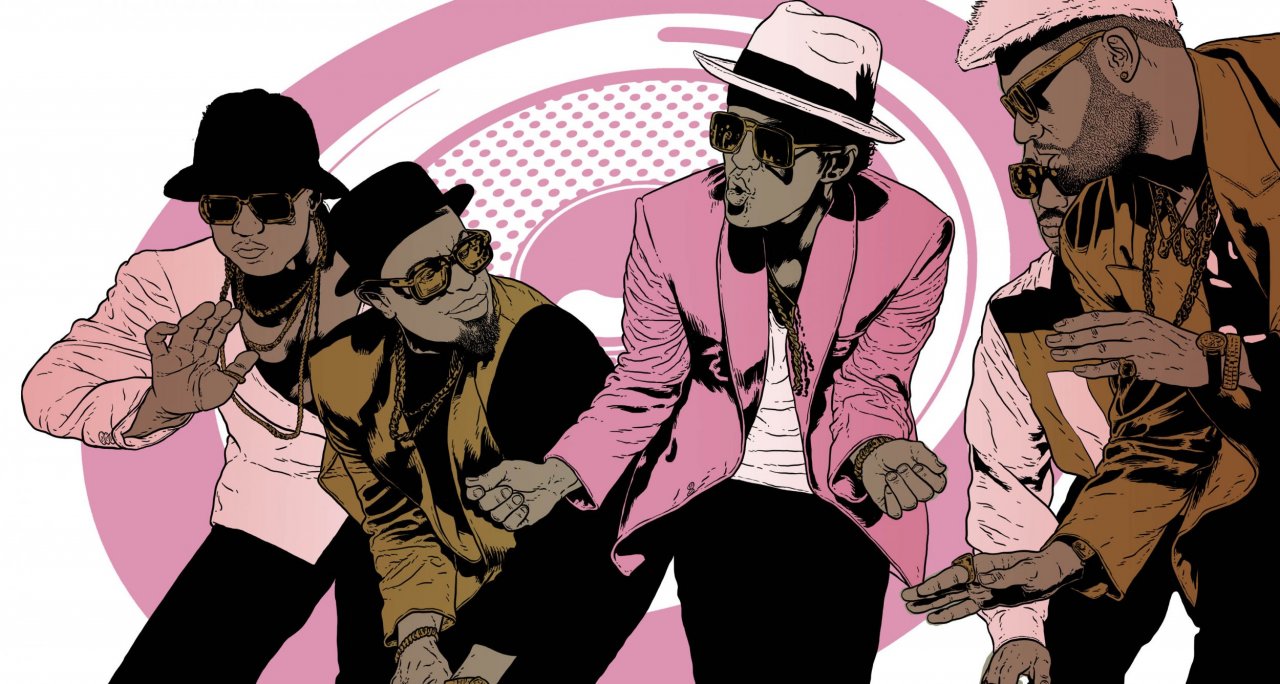
The Billboard Hot 100 recently confirmed the dominance of the Mark Ronson/Bruno Mars collaboration when the song finished atop that chart for 14 weeks—one short of the all-time record. It doesn't matter that "Uptown Funk" missed the milestone. Real proof of its immortality will come summer after summer: For the next quarter-century, it will persist as a choice wedding spin.
When "Uptown Funk" comes on, your kid sister will twerk, your giddy mom and drunken dad will do the Hustle, and cousins and friends will abandon cake and conversations to boogie. The song is an increasingly rare phenomenon, capable of uniting divergent demographics.
Which gives all of us hope for the future of mainstream art.
The industry used to crank out unifying jams: Motown 45s, Stax singles, disco hits, most of Michael Jackson's output between '79 and '88. Now we're lucky if we get one a year.
Don't blame the artists. Lily Allen's "Sheezus" and Usher's "Good Kisser" would have gone global a decade ago. Underground acts such as Animal Talk (you gotta hear "Tie Me Up") blend rock, pop and disco as exquisitely as Duran Duran. But Top 40 radio has scaled back, no longer expanding playlists the way it once did. If Usher can't find space between Taylor Swift and Katy Perry, what chance does an unsigned band have?
People cite the decline of traditional radio as the reason we have fewer hits, yet we've actually had dozens of new Top 40 stations debut since the turn of the century; they just play the same songs over and over again. Fewer hits with more spins does not equal universal appeal. Hitting No. 1 is no guarantee of getting the party started. Slip on Perry's "Roar" after "Billie Jean" and everybody hits the bar.
The marketplace for mainstream art has cracked into fragments, and even big niches like Top 40 radio, blockbuster movies and prime-time TV lack the cultural market share they once enjoyed. There will never be another Seinfeld, Star Wars or U2 (or even a new Calvin and Hobbes).
What's wrong with this? Unlike politics, religion and sports, art can unite divergent demographics in four minutes. When a song's gravitational pull gets our butts shaking, we connect with the collective. Old people feel part of a society dominated by youth culture. Young people see elders as something other than relics. The song creates an ephemeral flash where disparate groups get along because they've been spiked with the same euphoria. The moment leaves an echo.
Some summer Saturday night, whether you're in your Saint Laurent suit or Chuck Taylors, "Uptown Funk" is gonna give it to you and everybody else on that dance floor. Don't believe me? Just watch.














